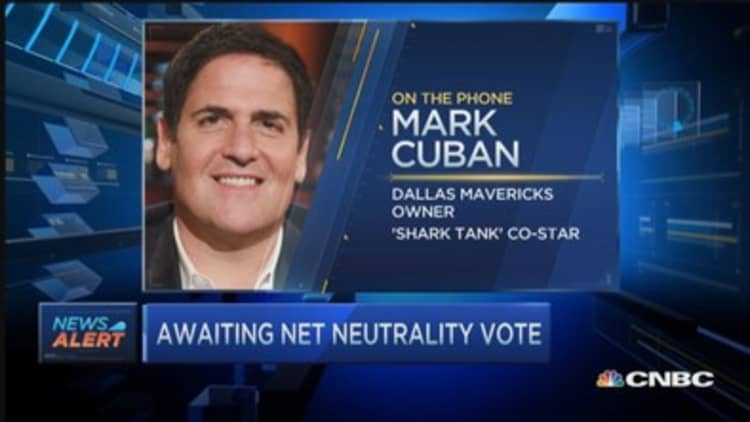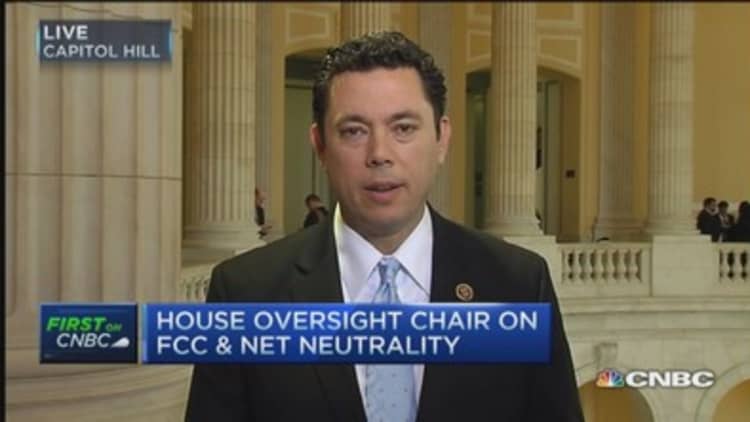


The FCC approved groundbreaking net neutrality regulations Thursday by a 3-2 vote along partisan lines. The battle between Internet companies and Internet service providers heated up ahead of the vote, with CEOs on both sides weighing in—including Netflix's Reed Hastings, for one, in favor, and Comcast's Brian Roberts, for another, against it.
Read MoreFCC votes toclassify Internet as a public utility
But the two sides aren't really disagreeing over net neutrality itself: There's general consensus about the basic tenets of no blocking or throttling of basic Internet service.
So what are people really fighting over? The controversy comes down to the fact that the FCC's new net neutrality rules reclassify broadband as a public utility—just as telecom companies are considered a public utility—under what's called Title II regulation.
Proponents of the new rules say regulating the Internet as a utility protects consumers and innovation.
Read MoreFather of net neutrality: Rules won't kill spending
Opponents say it stifles innovation and restricts capitalism. Essentially, the debate has become ideological and partisan.
"On the one hand, you have the Internet companies like Netflix and Facebook who are trying to ensure they have unfettered access to the consumer and that the consumer has unfettered access to them," said analyst Craig Moffett at Moffett Research.
"And on the other hand, you have companies like Verizon, AT&T and Comcast who are saying they don't oppose any of the net neutrality-related rules, but the legal framework in order to get there imposes all these burdensome regulations and the risk of government overreach."
The concern, Moffett said, is the risk that Title II regulation—even with all sorts of carve-outs, or "forbearance" on certain more onerous parts of Title II—will lead toward the government regulating prices.
Read MoreObama flip-flops on FCC transparency: Chaffetz
"Is this really a foot in the door towards price regulation of the broadband market?" he asked. "The Internet service providers, the cable companies, the phone companies would argue, yes, that this really is a step in the direction of price regulation because the statutes that are being imposed do include requirements around, quote unquote, just and reasonable pricing."
The FCC has said very clearly that it does not plan to regulate pricing. But the concern among opponents of the new regulation is that this could be a slippery slope.
Disclosure: Comcast is the owner of NBCUniversal, the parent company of CNBC and CNBC.com.


